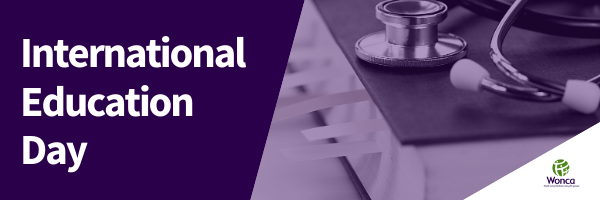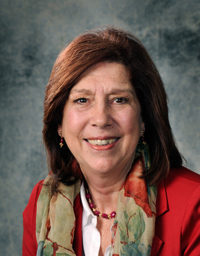International Education Day: A World View from the WONCA Working Party on Education

"To accomplish things, we must not only act, but also dream; not only plan, but also believe."
(Anatole France)
This important day, as we celebrate Education internationally, offers a crucial opportunity to reflect together, globally, on a future beyond the trials and tribulations of this dreadful, heart breaking pandemic. The WONCA Working Party on Education’s (WWPE’s) Regional Executive, comprised of lead medical educationalists from each global region, has done just that. Their recent paper on
“Reimaging medical education for primary care in the times of Covid-19: a world view” is available
here. So, what did we discover? How do we “recover and revitalise medical education post Covid-19”?
To recover, we need to dream
Educationalists, involved in both undergraduate and postgraduate training, have witnessed the astonishing rapidity with which teaching has moved from face to face contact to online delivery. There has been an unprecedented escalation of technology which is here to stay. So easy to just “act” on this and implement change. But we must pause first and “dream.” What might the future hold?
Without doubt, education will move forward. But then so will health care delivery. Workforce training must mirror the needs of future health care workers. These will alter as health care teams become increasingly interprofessional and technology embraces artificial intelligence. We must reflect carefully on the skills trainees must have. Inevitably handling risk, uncertainty and resilience will be crucial, as this pandemic has already highlighted.
To revitalise, we need to believe
Our world view revealed many ways education delivery had successfully adapted. This appears to be overshadowed, however, by important, less visible, tensions. Students are struggling with personal Covid-related fears and losses, uncertainties engendered by curriculum change and lack of face to face contact. Educators too are exhausted and worried by the unmitigating, seemingly relentless reactivity required to keep abreast change. Inequities are emerging across all continents, regardless of relative wealth, over access to the technologies needed for online learning; thus, widening the gap between rich and poor. Hidden issues are emerging which we believe are important and crucial to planning.
In our move to revitalise we must first research and understand how Covid-19 has impacted on our personal lives and on colleagues and students. We believe social accountability becomes of paramount importance. Educational institutions must partner with local stakeholders and address the needs of their health care systems. The safety and well-being of educators and learners is vital as we move to more distant learning. Equity of access for all learners and teachers becomes crucial. Before we make plans based on current practice, these are issues to explore and prioritise.
We, at WWPE, imagine a new era for medical education which draws on global connection and shared resources. We must not be caught on the crest of the Covid-19 wave and leave behind the mantras of past teaching. To revitalise we must first dig deeper to understand the full impact of the pandemic on us as all. Let’s strive to build on this International Day a strong global community of education practice and create a workforce able to enact, for the future, the successful delivery of Universal Health Care.

Val Wass , WWPE chair on behalf of regional representatives:
Marie Andrades (South Asia), Carmen Elena Cabezas-Escobar (Iberoamericana-CIMF), Joy Mugambi (Africa), Nagwa Hegazy Nashat (East Mediterranean), Victor Ng (North America), Robin Ramsay (Europe), Chandramani Thuraisingham (Asia Pacific).